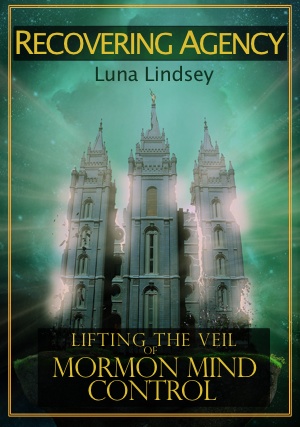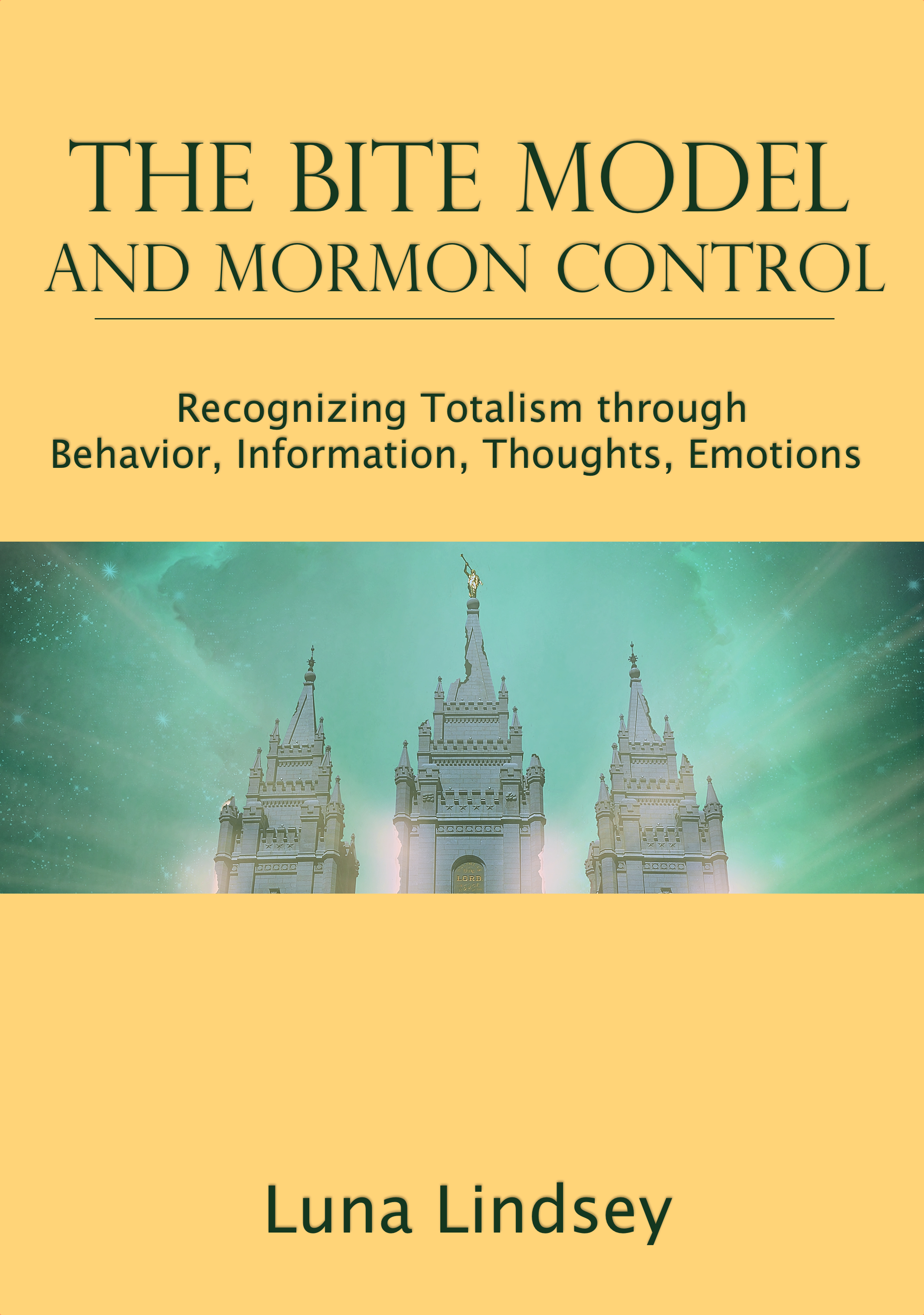In order to keep a member trapped in a cult, the group establishes a threat of some kind. This threat of death can be literal, but usually refers to spiritual death, loss of afterlife, loss of purpose, loss of identity, or the loss of important ideals and attributes. Those outside the group are currently or will suffer this loss of existence, and those who leave may be said to suffer a worse fate.
Some cults go so far as to threaten physical death or harm to those who leave, either through direct acts by fellow members, or through a loss of protection or loss of blessings that will lead to harm.
Yet threat of non-physical force can be at least as powerful. Many reason that the significance of this life is nothing compared to the next, and that some ideals are worth dying for, so it’s easy to see how loss of afterlife or ideals can be at least as powerful as physical force.
Those who have yet to be converted to the group are unenlightened, worldly, sinful, selfish, going to hell, or some other negative against the ideals established by the group and by society at large. The only way to “save” them is to convert them. Those who will not be converted, and those members who leave the group are spurned.
Identity is deeply tied to the cult experience. The sense of self becomes enmeshed in the group, replacing the original personality with a cult pseudo-personality. All sense of personal goodness and justification for living are based upon continual acceptance from the group. To then reject the member is to reject the identity. Ostracism becomes a terrifying possibility, and once shunned, some will wonder if life itself is even worth continuing.
By leaving, a member goes from being “good”, “spiritual”, “honest”, “kind”, “holy”, “enlightened”, to being “wicked”, “a sinner”, “lost”, “a liar”, “hateful”, “non-spiritual”, or even “evil”.
If you have placed a very high importance on being “spiritual” or “a good person”, your identity and core purposes for living become tied to the attribute you strive for. Perceiving the loss or potential loss of that attribute is nearly like dying, because these things provide a purpose for living.
Through doctrines of dispensing of existence, you believe you will cease to be… or cease to be in line with your ideals. These generate the same fears that keep you trapped.
Mormon doctrine is very clear on what happens to members who “fall away”.
Perhaps one of the most threatening scriptures regarding this is 2 Nephi 2:27. I refer to this scripture a lot, because it is used frequently by the Church itself, and because it is a perfect example of so many aspects of mind control:
“Wherefore, men are free according to the flesh; and all things are given them which are expedient unto man. And they are free to choose liberty and eternal life, through the great Mediator of all men, or to choose captivity and death, according to the captivity and power of the devil; for he seeketh that all men might be miserable like unto himself.”
You are free to choose all right, but your choices become severely limited, down to only two paths with two extreme consequences. One is life and liberty, the other is certain destruction. Members recognize that this refers to the afterlife, and also to personal happiness and freedom during this life. Once you are under the influence of the devil here and now, it’s pretty much curtains for you.
Another oft quoted scripture, Mosiah 4:30:
“But this much I can tell you, that if ye do not watch yourselves, and your thoughts, and your words, and your deeds, and observe the commandments of God, and continue in the faith of what ye have heard concerning the coming of our Lord, even unto the end of your lives, ye must perish. And now, O man, remember, and perish not.”
This is pretty plain. Endure to the end, or die.
D&C 19:17-18:
“But if they would not repent they must suffer even as I; Which suffering caused myself, even God, the greatest of all, to tremble because of pain, and to bleed at every pore, and to suffer both body and spirit–and would that I might not drink the bitter cup, and shrink–“
D&C 64:23
“…for he that is tithed shall not be burned at his coming.”
D&C 82:3:
“For of him unto whom much is given much is required; and he who sins against the greater light shall receive the greater condemnation.”
Scripture stories are repeatedly clear about what happens to those who fall away. Cities are thrown into the ocean, entire races are cursed, wars begin, and people are struck by lightning.
Mormon folklore delivers its own stories. Those who shot Joseph Smith all died terrible deaths (they didn’t really). Members tell Mormon urban legends of apostates or sinners who died in fatal car accidents or became drug addicts or other such extremes.
Those who appear less-worthy or who apostate are instantly pitied or looked down upon. Excommunication and disfellowshippment are devastating to some, because worthiness plays such a large part in the social role and identity of Mormons. For those in the Mormon Corridor, where the population is nearly all Mormon, excommunication can result in a lot of real-world problems, including a loss of livelihood, friendships, and social acceptance from any source.
When I was younger, a friend of a friend was severely depressed and suicidal, thinking he had sinned to the point where God could no longer love him. He even thought himself unworthy to pray. His sin? He had been involved in “heavy petting” with a girl. Some might say the Church does not teach sin makes one unworthy of prayer, and that no doctrine should have made this young man suicidal. They would quickly blame this young man for misunderstanding the “plain and precious things”. Yet it is not a misunderstanding in light of the harsh scriptures against those who have sinned and the social “doctrines” involved. Even the language used speaks to issues of existence and self-esteem — “worthiness”, or what you are worth as a person.
Perhaps he had heard the following quote from the First Presidency:
“You young people, may I directly entreat you to be chaste. Please believe me when I say that chastity is worth more than life itself. This is the doctrine my parents taught me; it is truth. It is better to die chaste than to live unchaste. The salvation of your very souls is concerned in this.” We Believe in Being Chaste, Sept. 1981 Ensign
Read more about Dispensing of Existence in my book, Recovering Agency: Lifting the Veil of Mormon Mind Control.



